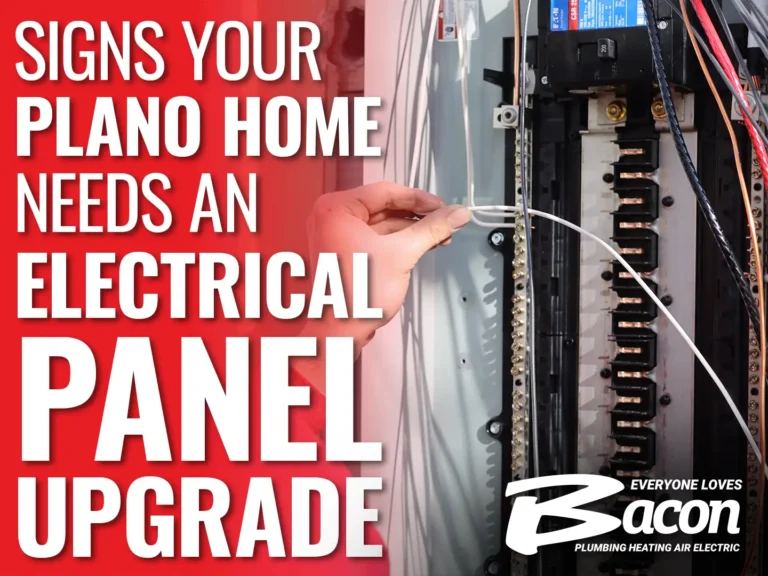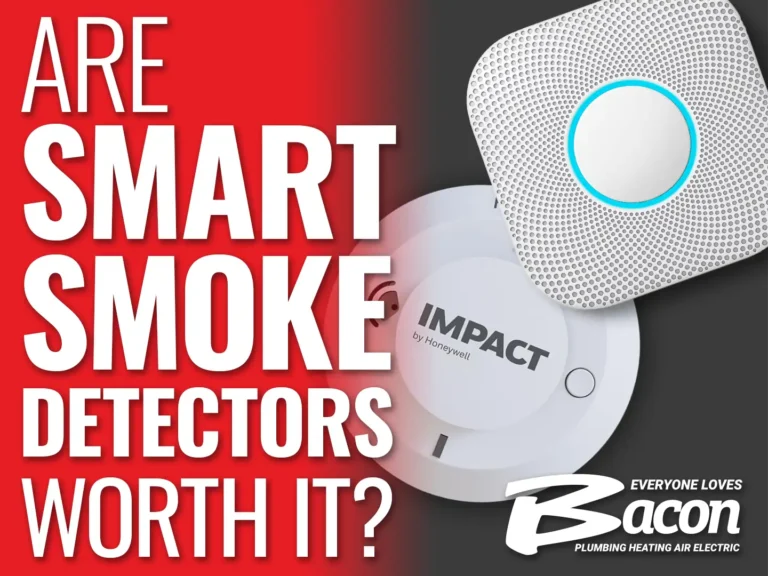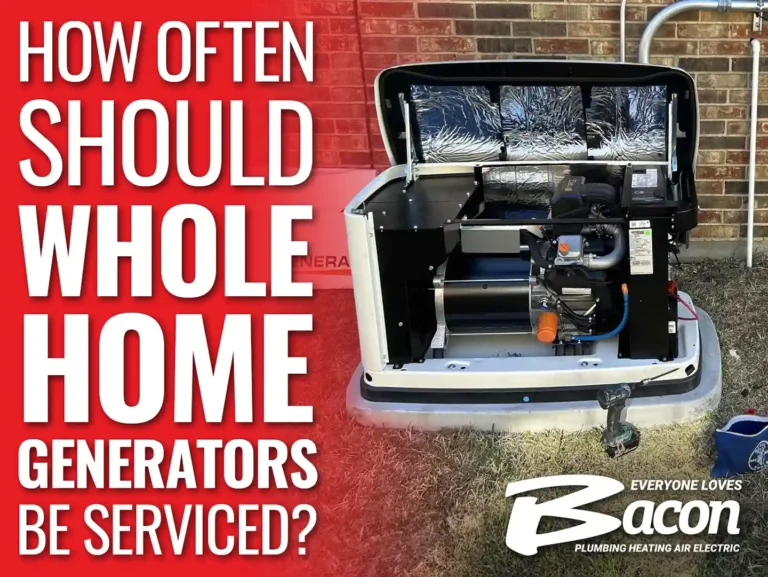With fewer new homes built in Dallas-Fort Worth last year than any other since 2009, more and more homeowners are turning to remodels and renovations. For many, now is the perfect time to invest in the home they already have, or make a great profit flipping a house in one of the older yet up-and-coming neighborhoods. Of course, with renovations come many decisions about the right investments to make, and an electrical panel is one of the major ones to consider.
When to Consider Panel Replacement
If you’ve recently purchased a home, especially an older home or a fixer-upper, it’s important to find out when the electrical system was last updated. If it’s been longer than about 25 years, you’ll definitely want to have it inspected by a licensed electrician. Some electric panels can last longer than this—up to 40 years—but it’s best to get a professional opinion. That way, you can schedule any necessary repair services before moving in or moving forward with renovations.
There are a few other situations where it’s best to consider a panel replacement. Let’s dive a little deeper into these warning signs.
The Breaker Panel Feels Warm or Smells
Any heat or burning smell coming from your breaker box means trouble. The job of your panel is to manage the flow of electricity throughout your house. If there is an electrical overload, the breaker should trip before overheating occurs. Any heat or burning smell means that your breakers aren’t tripping, and the insulation, the plastic around the electrical wires, or even the wood in your walls could be burning.
If you notice any of these issues, call Bacon’s 24/7 emergency electric repair service immediately at (469) 922-2859!
Flickering Lights
If your lights flicker during a storm, that’s a pretty normal occurrence. But they should never dim or flicker under normal circumstances. While flickering lights aren’t always a sign that your panel needs to be replaced, they are one of the major warning signs of unstable electrical connections and should be inspected by a professional.
Constantly Tripping Circuit Breakers
Usually, if a breaker trips, you should have some idea what caused it—you plugged too many lights into one outlet or ran one too many major appliances, like hairdryers, in one room. In the absence of an explained event like this, your circuit breakers really shouldn’t be tripping often. If they are, your panel likely doesn’t have the right amperage for the amount of electricity you’re using.
While the National Electric Code (NEC) only requires that panels have 100 amps minimum, modern homes put a lot more pressure on an electrical system than those models can typically handle. These days, you’re likely to need a model with 150 or even 200 amps to safely and comfortably handle all your electrical service needs.
You’re Expanding the House
Whether you’re flipping a fixer-upper or simply adding onto the house you call home, an expansion calls for an upgrade. You may want to purchase an entirely new panel or add a sub-panel to handle the added energy consumption demands. It’s easier and more cost-effective in general to do this work at the same time as your remodeling project.
You may also want to consider a whole-home energy management system. Bacon Plumbing Heating Air Electric offers the Pure Energy™ system to handle all of a modern home’s energy needs, from money-saving efficiency features to surge protection and beyond.
The Panel is Out of Code
The NEC code for electrical panels sets the standards for things like the safest location and amount of clear working space necessary around a home’s electrical panel. It also outlines safety features for a panel’s design and engineering.
The code is constantly being reviewed and updated, and as such, many panels installed in the 70s and 80s are no longer up to code. These types of panels are responsible for electric shocks and house fires. That’s especially true for Federal Pacific fuse boxes and Zinsco electrical panels.
How do I know if I have a Zinsco panel?
Look for the word “Zinsco” or “GTE Sylvania” on the label inside of your panel. The panel door may also have the word “Magnetrip” embossed in the metal—this refers to the type of circuit breaker Zinsco produced. Finally, you may notice toggle switches made of red, blue, and green plastic instead of the modern black toggle switch. Some Zinsco models do have black breakers instead of colorful ones, so don’t rule it out if you don’t see these colors.
Zinsco panels were produced and commonly installed in homes throughout the Dallas-Fort Worth area in the 60s and 70s. In 1973, the company was sold to GTE Sylvania. They stopped production in 1981 due to design flaws that caused the breaker bus bars to corrode easily, overheat, and fail to trip. That means if you were to have an electrical overload, the breaker switches may not flip, quickly putting you at risk of a devastating house fire.
If you have a Zinsco panel, you need to have it replaced immediately.
Get an Expert Opinion from an Expert Electrician
At Bacon Plumbing Heating Air Electric, our technicians are licensed and trained to handle all of your electric repair needs. Just as important is our commitment to treating all our customers like family. We’ll never recommend a replacement if you don’t need it, and we’re happy to provide an expert opinion during your remodeling or renovation project. If you have questions about your electric panel, schedule an electric safety inspection to put your mind at ease today!
Comprehensive Electric Panel Repair & Installation in Dallas-Fort Worth, TX
Whether you need one circuit replaced or an entirely upgraded system, the team at Bacon has your back. As a family-owned business, we take our commitment to customer service seriously. That’s why we offer upfront, flat-rate pricing, 24/7 emergency service, and a Meet Your Tech feature. Take the guesswork out of your electrical service—reach us online or call (469) 922-2859 today!



